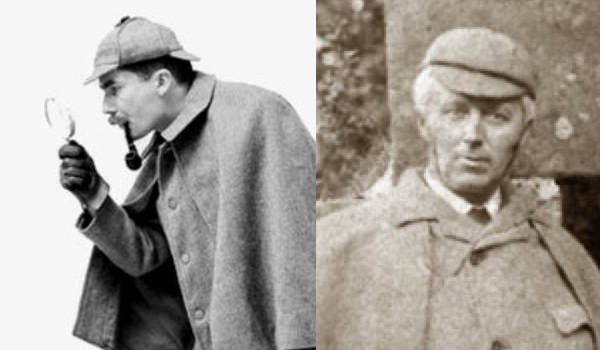Fictional Newspapers In Literature
[source: 20th Century Fox]
The Post is nominated for Best Picture for Oscars 2018! The movie, starring Tom Hanks and Meryl Streep, is based on a true story. It tells the incredible tale of a US Government cover up, the first female publisher of a major newspaper, and that paper (The Washington Post) as it attempts to take on the government for the right to reveal the truth. It’s a film that is perfectly positioned for the early days of 2018; an inspirational story, a female lead, a basis in truth, and a reminder of why the traditional media is so important in a time where the news comes more and more through social media and alternative channels.
The Post is also likely to reignite a spark of fascination with the newspaper industry—and the kind of hard-hitting reporting that inspires so many to become journalists. It may also interest people in the fictional stories of papers; those that appear in our favorite books and series, that have a little fun with the usual real-world format, that report some far more interesting news than we will ever see. We’re rounding up the best of them!

[source: Warner Bros]
The Daily Prophet
This may be the best-known fictional newspaper in the world, and the choice of witches and wizards all over Britain! From J.K. Rowling’s Harry Potter series, The Daily Prophet features photos that move, as well as stories on escapees from Azkaban, exploits of the Boy Who Lived, and a large amount of gossip (thanks to Rita Skeeter). One of the most incredible things about this paper (which also has an evening and Sunday edition) is that the news can change throughout the day within the paper itself—making it a combination of online news and a classic broadsheet. It’s not the only paper in the Wizarding World of Harry Potter, either; the Quibbler prints some more alternative "news," while others like Witch Weekly are straight-up gossip rags.

[source: Sony Pictures]
The Daily Planet, The Daily Bugle, and The Gotham Gazette
The Daily Prophet might be the most famous fictional newspaper, but the Daily Planet is its major competitor, at least in terms of notoriety. The Planet is the paper where Superman and Lois Lane put in their hours, while the Gotham Gazette covers Batman’s goings-on, and J. Jonah Jameson sits behind his desk at The Daily Bugle demanding more pictures of Spider-Man! These papers themselves aren’t that different to the newspapers of our own world, but there is one thing that will be front page on all of these: superheroes! And of course, we know that superheroes are even working behind the scenes at these publications, making them all the more exciting.

[source: Netflix]
The Daily Punctilio
The tabloid paper from Lemony Snicket’s A Series of Unfortunate Events, The Daily Punctilio is a scathing indictment of the modern gossip rag. The paper doesn’t care about accuracy or professionalism, routinely including personal opinion, ridiculous headlines, absurd stories, and flat-out misinformation for the sake of gaining readers. It is, in short, the forerunner to clickbait, and the characters are just as disgusted with it as we are on reading lists of things that will shock us (or earn us inconceivable amounts of money for doing nothing). One of the best bits about the paper (in fact, really the only good part), is the name: Punctilio being an intentional misspelling of Punctilious… showing great attention to detail. Delicious, delicious irony.
The Daily Beast
Another brilliant (if much more pointed) satire on sensationalist journalism is the Daily Beast, the central paper in Evelyn Waugh’s Scoop. Based on Waugh’s own experience of working for The Daily Mail as a foreign correspondent, Scoop paints a portrait of the Daily Beast that is damning in its accuracy. Fast paced and utterly spot-on, Scoop is beloved by journalists for the same reasons that chefs adore Anthony Bourdain’s Kitchen Confidential—it’s just so accurate, and so perfectly skewers an imperfect industry. However, the Daily Beast gets an extra mention on this list of the fictional fantastic, because this year it will be eighty years old. And it's still incredibly relevant.
The Daily Mole, Owl On Sunday, The Toad
The world of Thursday Next is a cult favorite with literature nerds, and for good reason. A fantasy/sci-fi series with some major twists, Thursday herself is a literary detective with a pet dodo, living in a parallel universe as a Literary Detective, leaping in and out of novels after the characters who are doing the same. As a Jursifiction officer, she must ensure that the plots run smoothly each time they are read…and it’s a harder job that you might expect. For such a fantastic world, it’s no surprise that it comes with some equally fantastically named newspapers. The Daily Mole, The Owl On Sunday, and The Toad are just three of the papers that exist in this universe, read by those who otherwise often communicate in constantly changing footnotes in literature.
The Ankh-Morpork Times
The Ankh-Morpork Times has the honor of being most likely the first newspaper published within Terry Pratchett’s Discworld. However, it is far from the only one to deal with the mysteries of print in a world where news could be anything, the true may seem false, and the wizards are worried that the press itself may carry over some of the magic from the last spell it printed. However, the Ankh-Morpork Times has so much more history than the The Pseudopolis Herald, The Sto Plains Dealer, or The Tanty Bugle.

[source: Touchstone Pictures]
The Sidereal Daily Mentioner
This deserves only an honorable mention, being only honorably mentioned once in Life, The Universe And Everything, part of Douglas Adams’ Hitchhiker’s Guide series. In this novel, a reporter for the Sidereal Daily Mentioner went half-mad covering a trial on Argabuthon where a prisoner was giving too much truth serum, and started telling “truth in its absolute and final form”… which is, of course, one of the most dangerous things in the galaxy. Extra bonus points for the name, a reference to Galileo’s Sidereal Messenger, the first published scientific work based on observations through a telescope.
What is your favorite fictional newspaper? Let us know on Twitter @quirkbooks!






